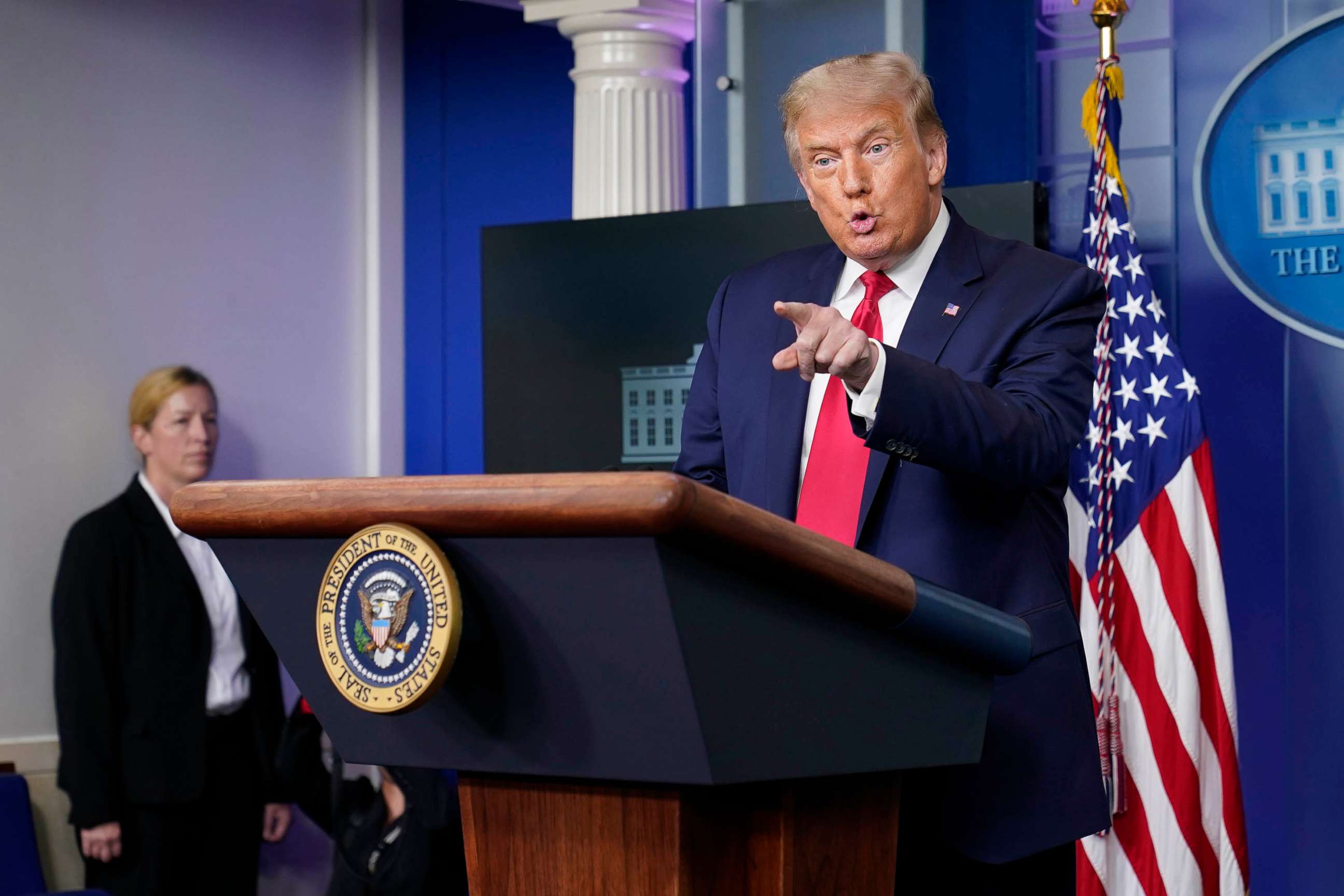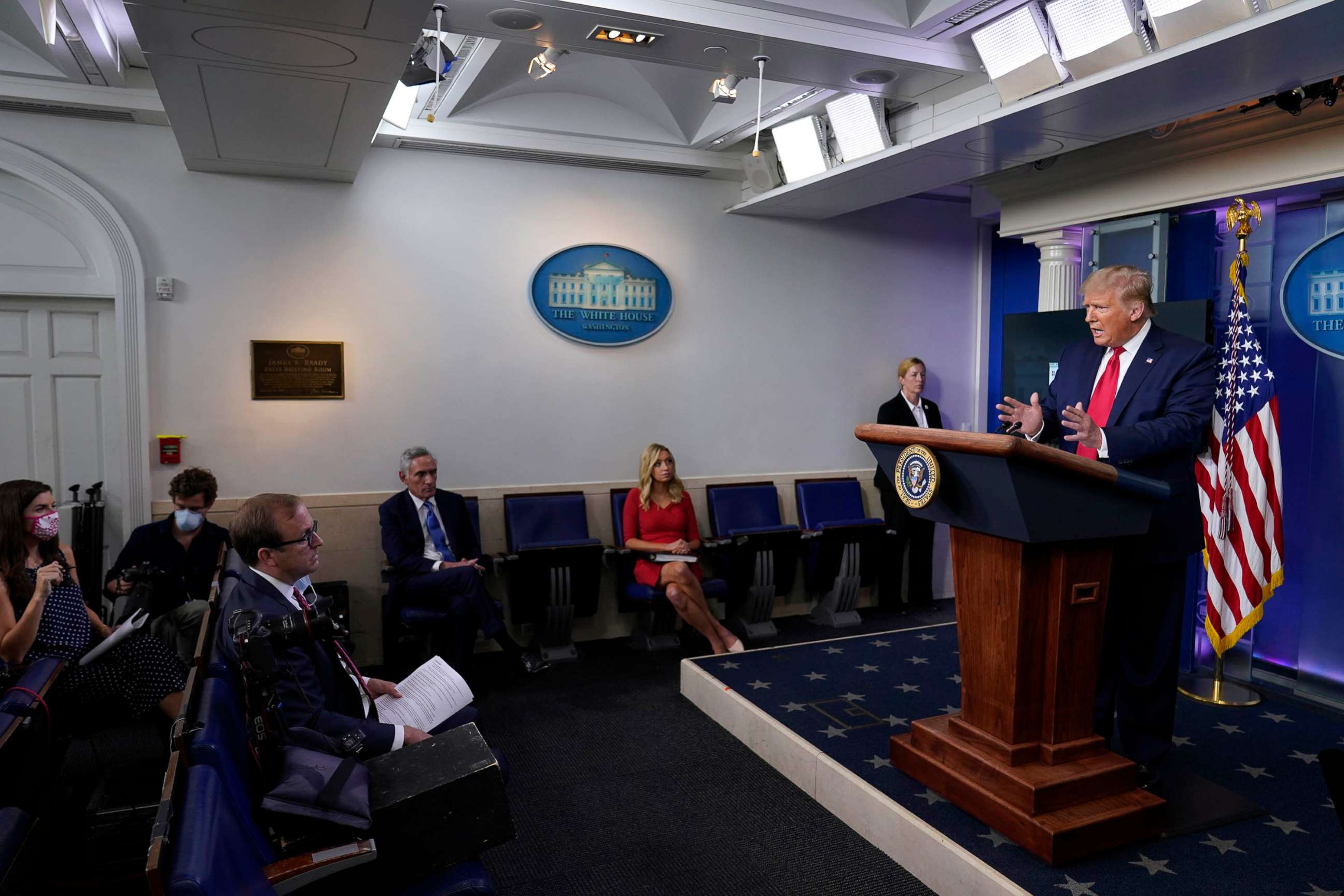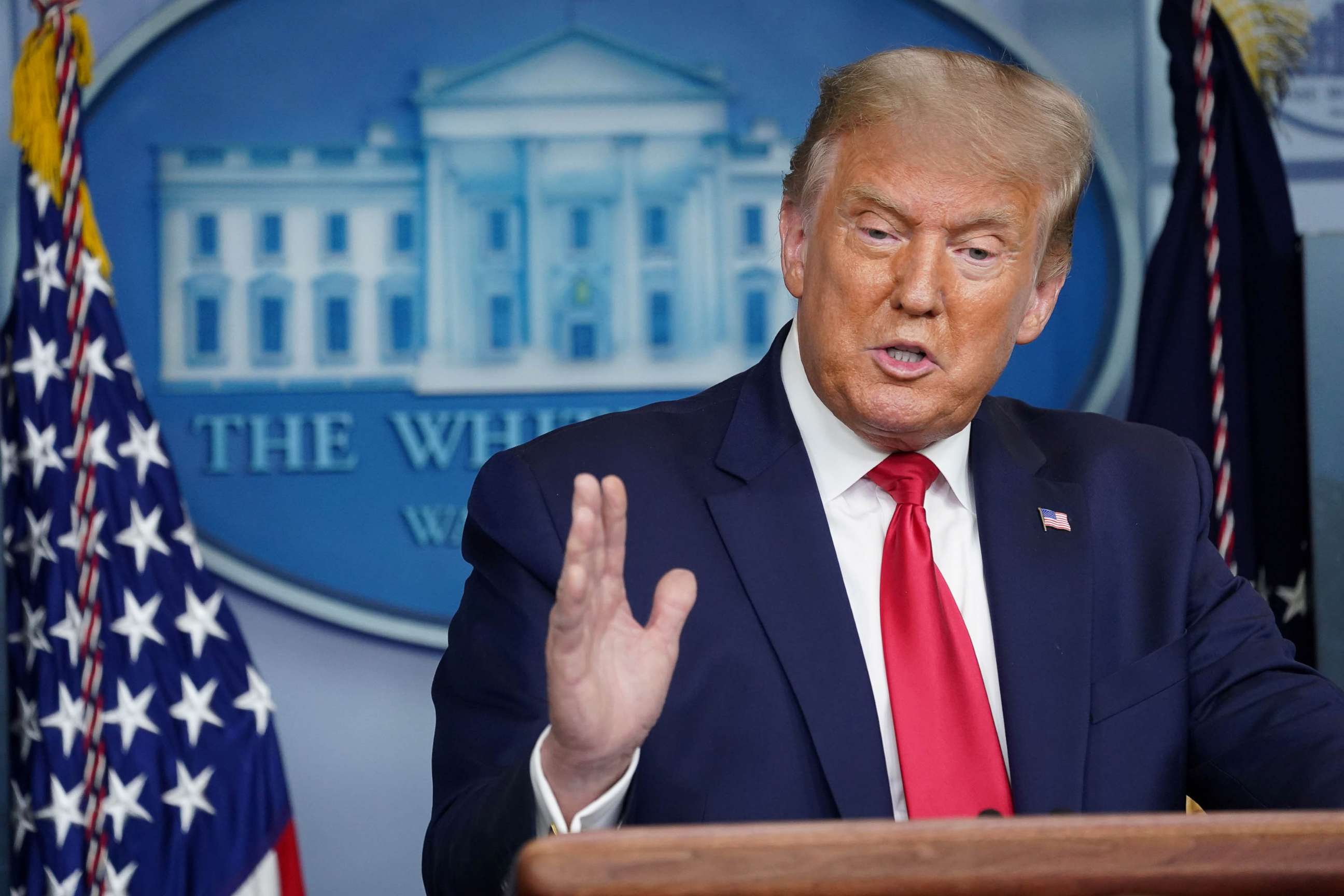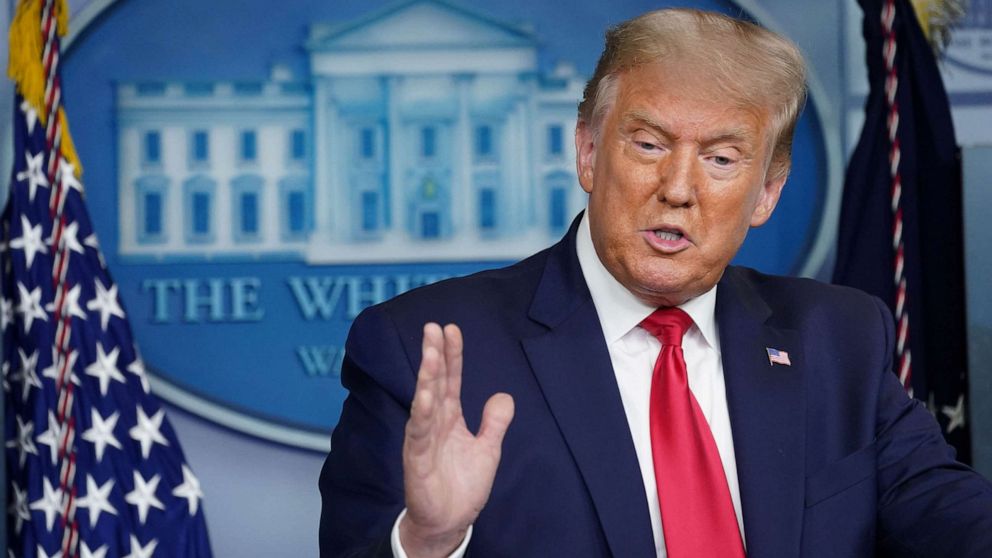Trump stands by comments made in Woodward interview: 'I didn't lie'
President Donald Trump, at a White House news conference Thursday, continued to defend comments he made to journalist Bob Woodward in which he admitted he deliberately downplayed the seriousness of the coronavirus to the public despite knowing its deadly danger, and argued that if the comments were so bad, Woodward should have made them public sooner.
"If Bob Woodward thought it was bad, he should have immediately gone out publicly, not wait for months," Trump said, appearing to try to deflect any blame. Woodward told The Associated Press Wednesday that he needed time to confirm that Trump's private comments were accurate.
"If I had done the story at that time about what he knew in February, that's not telling us anything we didn't know," Woodward said, saying he made it a priority to get his story out before the election. "Had I decided that my book was coming out on Christmas, the end of this year, that would have been unthinkable."

Trump, asked by ABC News Chief White House Correspondent Jonathan Karl, "Why did you lie to the American people and why should we trust what you have to say now?" dismissed the question and denied he had lied. "That's a terrible question and the phraseology. I didn't lie. What I said is we have to be calm. We can't be panicked," he said.
Karl pressed the president on the contradiction between what he said to Woodward and portrayed in the public, noting that Trump acknowledged to Woodward on Feb. 7 the virus was deadlier than the most "strenuous flu," but three weeks later told the American people it was "just like the flu."
"Listen. What I went out and said was very simple," Trump replied. "I want to show a level of confidence, and I want to show strength as a leader. I want to show our country will be fine one way or the other whether we lose one person -- we shouldn't lose any. This shouldn't have happened. This is China's fault. Nobody's fault by China."
"I don't want to jump up and down and start screaming 'Death! Death!' Because that's not what it's about. We have to lead a country. We're leading a great country. We're doing a great job," he continued.
Philip Rucker of the Washington Post followed Karl's line of questioning by pressing Trump on why he told Woodward he knew the virus was airborne but wouldn't say that publicly, to which Trump said, "everybody knew it was airborne. This was no big thing."
As he did on Twitter Thursday morning, Trump tried to use Woodward in his defense, saying if his actions were so bad, then why did Woodward not bring them to the public.
"If Bob Woodward thought what I said was bad, then he should have immediately right after I said it gone out to the authorities so they can prepare and let him know. But he didn't think it was bad. He said he didn't think it was bad. He actually said he didn't think it was bad," Trump said.
Trump's earlier prepared remarks quickly turned toward the election and an attack on Biden in which Trump suggested Biden and his running mate Sen. Kamala Harris are anti-vaccination because they've questioned Trump's credibility. Harris on Sunday said she would not trust Trump's word alone on the safety of a coronavirus vaccine because of the political pressure she says he's put on other agencies.
"Biden is perfectly happy to endanger the lives of other people by doing something that he thinks is going to help him politically because his polls are getting very bad, they're getting very shaky," Trump said.

The Biden campaign, meanwhile, argues that by playing down the virus in public Trump endangered lives, and had he enforced mitigation efforts sooner, tens of thousands of lives could have been spared.
"He knew how dangerous it was, and while this deadly disease ripped through our nation, he failed to do his job on purpose. It was a life-and-death betrayal of the American people," Biden said at a campaign stop in Michigan on Wednesday.
The president gave 18 interviews to Woodward for the upcoming book "Rage" which he has already called a "political hit job."
He took only three questions at Thursday's news conference.
"The United States has done real well. Very proud of everybody that worked on this. I really do believe we're rounding the corner and the vaccines are right there," Trump told reporters, continuing his rosy outlook. "We’re rounding the final turn."
Trump's statements to Woodward, as reported by CNN and The Washington Post, reflect a greater recognition of the threat than he let on publicly.

"I wanted to always play it down," Trump said on March 19, according to CNN, which obtained an audio recording of the interview, and The Washington Post. "I still like playing it down, because I don't want to create a panic."
The president had acknowledged to Woodward over a month before that the recognized COVID-19 was "deadly stuff" -- in contrast with the president's public assertions the virus would "work out fine" and was "very much under control."
In his initial reaction to reports on Woodward's book Wednesday, Trump defended his rosy public assessments as part of a possible effort not to "create panic."
"Well, I think if you said in order to reduce panic, perhaps that's so," Trump said. "The fact is, I'm a cheerleader for this country. I love our country. And I don't want people to be frightened. I don't want to create panic as you say. And certainly, I'm not going to drive this country or the world into a frenzy. We want to show confidence. We want to show strength. We want to show strength as a nation. And that's what I've done."
"I'm the leader of the country, I can't be jumping up and down and scaring people," Trump later told host Sean Hannity. "I don't want to scare people. I want people not to panic, and that's exactly what I did."
This report was featured in the Friday, Sept. 11, 2020, episode of “Start Here,” ABC News’ daily news podcast.
"Start Here" offers a straightforward look at the day's top stories in 20 minutes. Listen for free every weekday on Apple Podcasts, Google Podcasts, Spotify, the ABC News app or wherever you get your podcasts.




